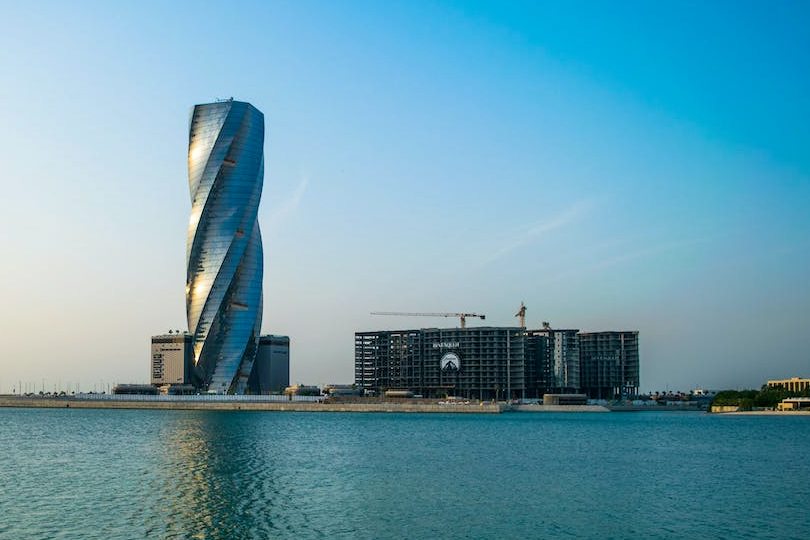
If you’d like to transfer your pension overseas to the Kingdom of Saudi Arabia, read on as I explain how to make an informed and cost-efficient decision.
Starting with only your existing scheme details to hand, I can handle all the following steps for you and ensure a safe and smooth transition.
Also consider: Read more about how to transfer your UK pension
Looking to transfer your UK pension?
Speak to me, Dan Ward, about transferring your UK pension funds to Saudi Arabia.
Checklist for transferring a UK pension to Saudi Arabia
- Collate all existing UK pensions
- Request a CETV (Cash Equivalent Transfer Value)
- Conduct a cost and performance comparison
- Identify the best overseas solution for Saudi Arabia – I can help with this
- Submit transfer request documentation to the existing and new provider
Advice Requirement
It’s important to know that there may be a legal requirement to seek appropriately specialised advice about your pension transfer. However, very few UK financial advisers are licensed, qualified or sufficiently experienced in expatriate pension transfers to help you.
I am a specialist investment adviser for UK pension transfers and ex-pat financial security, and I have the expertise you need to safeguard your pension savings. Contact me to discuss your pension arrangements, and I can help you achieve your desired retirement lifestyle in Saudi Arabia.
Your UK Pension Scheme
Of course, before you can commence any pension transfer, you must determine which form or forms your pension fund takes. It is usual for anyone who has lived and worked in the UK to have more than one pension scheme, either via work, by opening a personal pension savings plan or through sufficient National Insurance (NI) contributions to qualify for some UK state pension benefits.
All workplace and personal UK pension arrangements are eligible for income tax relief on your contributions, and their growth is free of capital gains tax when invested. You only have to pay income tax once you begin receiving pension benefits as a UK resident, and only if your income exceeds your tax allowance.
A tax-free pension commencement lump sum of a quarter of your pension fund is generally available from ten years below state retirement age. The retirement age varies according to your date of birth, and you can find yours by logging in to the UK government’s pension forecasting website. Here, you might also be able to increase the amount of state benefits payable by plugging gaps in your NI contributions.
Remember that although you may receive your UK state pension via direct credits to a bank account as a Saudi resident, this income will not keep pace with inflation as it does for UK residents. If you’d like to learn more about this, you can contact the UK government’s International Pension Centre using their online form or through email.
Work Pensions
You should have at least one workplace pension for every British employer you have had since 2012, when it became compulsory to enrol employees in occupational schemes. Still, you may have opted out. If unsure, you can use the Pensions Tracing Service to search for any workplace arrangements you’ve accumulated or forgotten about. I may be able to help you consolidate these through transfer to one pot in the form of a suitable expat scheme for Saudi Arabia.
Your occupational arrangements will be defined benefit (DB), often known as final salary schemes, or defined contribution (DC), frequently referred to as money purchase plans.
Final Salary Schemes (DB)
Final salary pensions are so-called because they provide an annuity that is a proportion of your former salary for the rest of your life. Both private and public sector employers offer DB pension plans, but they are most common within the public sector, for example, local government, the NHS or the armed services. Yours may be ‘unfunded’, meaning your employer or the taxpayer will pay your pension income, which you accrue through your years of pensionable service rather than investment growth.
In the case of private sector DB schemes, the Pension Protection Fund provides a safety net should your employer become insolvent. You will have to wait until your state retirement age to claim, except in cases of severe ill health, but you could still get up to 90% of your retirement income in this way.
For the privatised (formerly public sector) employer BT, the UK government has made special pension protection in the form of The Crown Guarantee should BT be wound up as a business.
You are legally compelled to consult a suitable financial adviser if you have more than £30,000 in a DB scheme you want to transfer. This requirement aims to safeguard your pension assets from poor advice. You may have to demonstrate that you have made sufficient alternative provisions for your retirement before the pension scheme provider will agree to transfer your DB pension.
All other workplace arrangements and every type of personal pension fall under the heading of money purchase schemes.
Money Purchase Schemes (DC)
Money purchase, that is, defined contribution schemes, accrue through the investment growth of your contributions. Some older style schemes oblige you to buy an annuity out of your pot, reducing your savings in return for a guaranteed income. You can escape this by transferring your occupational pension into an arrangement designed with expats in mind.
With most workplace arrangements, the pension provider usually makes all decisions about how and where to invest your retirement funds, but there are a couple of exceptions.
Workplace Self-Invested Personal Pension (SIPP)
Workplace, also called group SIPPs, are a type of pension wrapper that grants the holder access to a far more comprehensive range of investing choices than any standard pension can offer.
Workplace SIPPs are a popular choice among certain professions that may combine their individual pension funds to extend purchasing power as a group. In this way, commercial property may be purchased from which to operate and help grow the business.
It doesn’t matter whether you manage your SIPP entirely alone or pool it with others and let someone else make the investing decisions. As long as everyone involved shares a single provider, it is still a group SIPP. The great thing about all SIPPs is how readily convertible they are to an international SIPP, a product suitable for internationally mobile people who want to enjoy their UK pension overseas. I explain more about this below but feel free to contact me now if you’d like to discuss the pension transfer options for your workplace SIPP.
Small Self-Administered Schemes (SSAS)
Meanwhile, for senior executives and directors of private businesses, there is the alternative option of a small self-administered scheme, SSAS.
The number of SSAS participants in any one plan is restricted to eleven and can include relatives. Rather than a traditional pension scheme administrator, the members form a trust and become trustees responsible for the investments, perhaps working with a financial adviser for investment recommendations.
As with a SIPP, an SSAS can offer access to an almost limitless array of investment options, including commercial real estate and making loans to the firm.
If you hold pension assets in an SSAS and are curious how best to access them once you are ready to retire in Saudi Arabia, get in touch. I’m happy to look at your individual circumstances and share my professional advice.
Looking to transfer your UK pension?
Speak to me, Dan Ward, about transferring your UK pension funds to Saudi Arabia.
Personal Pensions
Suppose you are self-employed, have had time out of the workplace or want to make additional provisions for your retirement. In these cases, you may hold pension funds in a personal plan. You will likely have opened this arrangement via an insurance company, bank, building society, or other pension provider. You should receive an annual statement with further information about your savings and their performance at investment.
There are various personal plans, but two of the most popular are stakeholder plans and self-invested personal pensions (SIPPs).
Stakeholder
Stakeholders are accessible to virtually everyone, whether in work or not. Their low management charges and guaranteed freedom from exit penalties make them eminently suitable for transfer to a self-invested personal pension for anyone needing to access their pension abroad.
Self-Invested Personal Pension, SIPP
The flexibility and control afforded by SIPPs are unparalleled, so it is unsurprising that this pension ‘wrapper’ attracts over a million people using one to save for retirement. Yet SIPPs are governed by all the same pension rules as any other UK scheme.
Charges can be higher than other pension funds, depending on the complexity of the assets you invest in. Please contact me if you want to convert your SIPP for access in a new country and would like more details on negotiating the lowest possible fees and determining your risk tolerance.
Is an overseas pension transfer necessary when retiring in Saudi Arabia?
Transferring your UK pension overseas is something you should never feel pushed into. You can often receive your pension income by direct transfer, leaving your pot exactly where it is when you retire abroad.
However, when you transfer your pension to an appropriate solution for British expats and Saudi nationals, you escape the inevitable currency risk of living abroad.
How to choose an overseas pension scheme for UK pensions
The two transfer options for accessing your pension overseas are a qualifying recognised pension scheme, QROPS or ROPs, or an international SIPP.
Both options provide similar benefits when you become a non-UK resident, including without limitation:
- Consolidation of various schemes into one international pot
- Potential tax benefits
- Ability to denominate a solid global currency
Yet significant differences distinguish QROPS/ROPS from international SIPPs, so how do you choose between the two?
Qualifying Recognised Overseas Pension Scheme, QROPS, Saudi Arabia
QROPS/ROPS are overseas pension schemes that satisfy the exacting requirements of His Majesty’s Revenue and Customs (HMRC) to receive UK pension transfers. There is a list of providers on the HMRC website, and verify that any you are considering are there. Otherwise, your provider may refuse the transfer; it could cost you over half your pot, or you could even fall prey to a scam.
There are no QROPS Saudi Arabia providers at the time of writing, yet you might consider a QROPS provider in the European Economic Area. Malta is a popular choice, and even for some Saudi residents, it can be the most appropriate jurisdiction. There will be an overseas transfer charge of 25% of your pot.
Still, if you are concerned about the possible reinstatement of the UK lifetime allowance (LTA), which may come with a change of UK administration next year, an overseas scheme based in Malta may be suitable. Feel free to ask me about the LTA limit and how it might inform your decision if your pension pot is around or over £1,000,000.
International SIPPs
International SIPPs are an excellent product for anyone unconcerned by the LTA limit, those who might return to the UK or move elsewhere and anyone planning a phased approach to retirement.
The transfer process is usually quicker and cheaper than a QROPS, and there is never an overseas transfer charge as your international SIPP stays where the Financial Conduct Authority regulates it and all SIPP providers. You still escape currency risk and can enjoy access to promising global investments.
Please contact me to determine if a transfer to an international SIPP benefits your situation and plans. I can assess your risk profile and ensure you escape needless additional taxes.
Looking to transfer your UK pension?
Speak to me, Dan Ward, about transferring your UK pension funds to Saudi Arabia.
How to transfer UK pension to Saudi Arabia FAQs
Can I move my UK pension to another country?
What happens to my UK work pension if I move abroad?
Please note
A pension is a long-term investment. The fund value may fluctuate and can go down, which would have an impact on the level of pension benefits available. Your pension income could also be affected by the interest rates at the time you take your benefits.
Overseas pension transfers can be complex. Make sure you take financial advice before you transfer your funds.
- Learn how to invest in the FTSE100
- Have you considered transferring your pension?
- Find the best trading platforms




